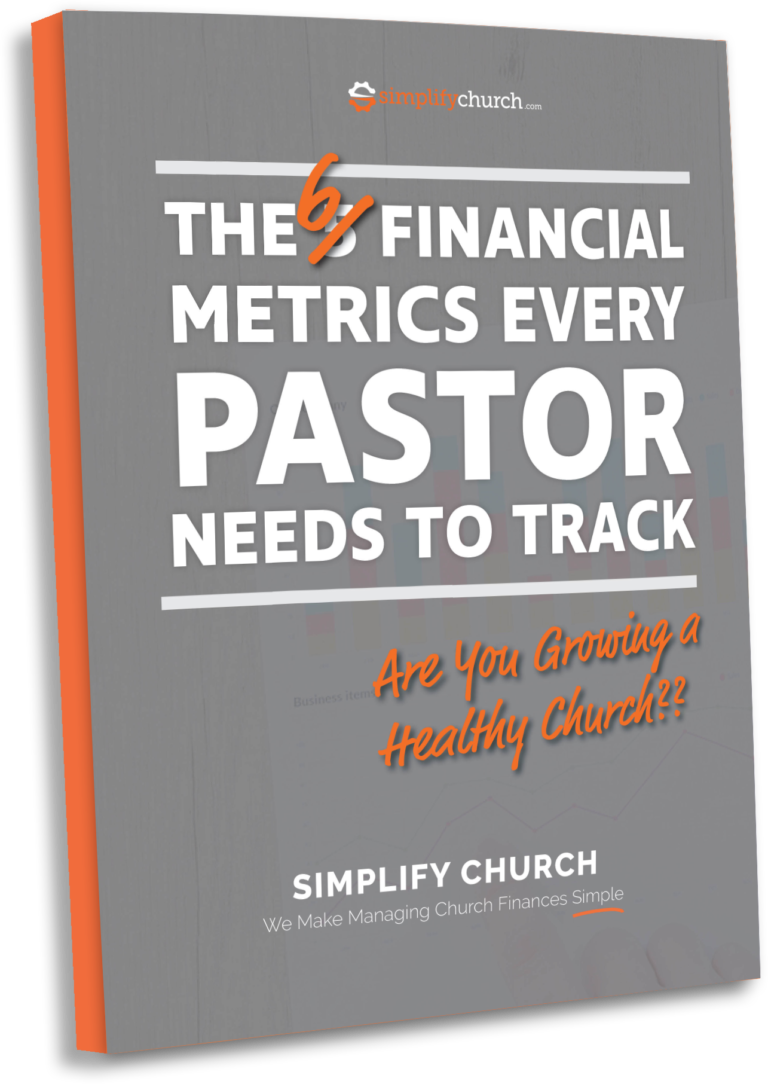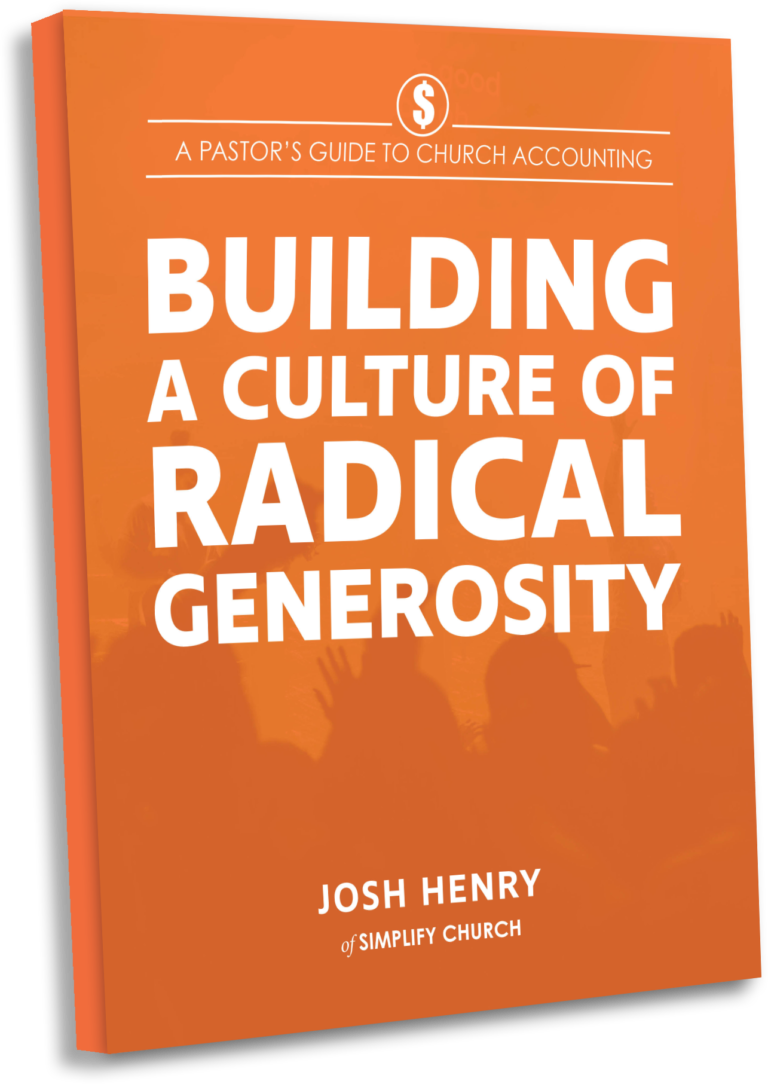We published last week the 3 Reasons Your Church Needs an Annual Budget and had some good responses from pastors that agreed, but wondered what were those next steps to getting their annual budget planned.
Today, we’ll give you 6 steps to Annual Church Budget Planning started. From these simple steps, you’ll have most of the framework in place to have an Annual Church Budget you can use for your ministry.
Step 1 – Review Last Year’s Church Budget
One of the best indicators of how you are spending and allocating your spending for your ministry is to look back at the historical patterns. Review this past year as a Profit and Loss statement. It will show you what you took in (income) and what you spent (expenses).
Look for any patterns. Also, look for any areas that have bigger numbers. When you look at yearly spending as a whole, over the entire period of time, you may get some surprises that you didn’t expect once things are put into perspective. Often, we’ll have churches that don’t realize what seemed like a small amount they were spending weekly, when added up over the year actually becomes a bigger percentage of budget than they expected.
Use these findings to decide if there are areas you need to focus or re-think how you’re allocating funds.
“Be honest here. If you’re spending $100 a week on donuts, and throwing out 2-3 dozen every week, it may be time to analyze or help your donut buyer plan better!”
Step 2 – Project your church year end financial
Ok, now we’re going to get into the nitty gritty of planning.
Since we’re not quite complete with the year, we’ll need to do some projecting of how things will end. The good news is if you’re reading this post in late November when it is published, we only have a few weeks left of the year so the projection will not be too hard. However, since you may be reading this at another time, we’ll show you a quick way to project.
Take your YTD Profit and Loss report for your church. This should show you what has been recorded as income and expenses so far this year. If you’re using Quickbooks, or hopefully our Simplify Church Bookkeeping System, this report will be pretty easy to produce.
If you can, export that report to Excel.
Once you have it in Excel, create a formula as follows =SUM (Col # / # of months in report) * 12. It will end up looking something like this: = SUM(B2/11) * 12
On the cell with your formula, grab the little square at the bottom right of the cell. Click and hold as you pull down so that you are highlighting all the way to the last row of the report. This is a quick way to duplicate the Excel formula you just made for all the rows.
What did we just produce?
This new column will be your End of Year projection on how you will finish the year. From this information, you can now start to project your Church Budget for the new year.
Step 3 – Analyze Year End and Plan the New Year
This is where the real planning begins.
Use the information you just produced and begin to think through your next year. I would re-color or highlight any numbers that are going to stay the same in the next year. This may be things like Rent, Subscriptions, Fees and other expenses that you are committed to or are vital to your ministry that you already know you will use in the next year.
PRO TIP : Add numbers into a third column in Excel so you have:
Column 1 – Real numbers produced from your Church Accounting Software
Column 2 – Projection from the equation you created in Step 2
Column 3 – Numbers we’ll enter as we create the next year’s Annual Church Budget
As you review line by line, think about those expenses that made up the numbers. Do they seem high? How does that line contribute to your ministry? Does that expense help you fulfill the Mission and Vision for your church?
Think through the spending of each line with those questions as a filter and use that to analyze what you’ve done so far.
As you complete your review, use Column 3 to put your final numbers for the next year’s church budget.
Step 4 – Get input from your ministry leadership team and key ministry leaders
Once you have a draft of the budget, which should be completed now in Column 3, share it with your ministry leaders. Get their input and thoughts.
If you have a staff, this is a good time to get their input into their ministry area and their plans for the new year. If we had more time, or had started this sooner, we could have had them draft their ministry area and then plan accordingly. Since we’re at crunch time, we can give each leader a primer for their decisions, and let them have input into the process.
Have a discussion with each leader about their area. Ask the same questions you considered in your preparation for the spending in their ministry area. The key here is to accept their input and get “buy in” from them. Let them feel a part of the process and understand why we have a budget, and how important good financial stewardship is to the success of the ministry.
If there are any adjustments that come up here in those discussions, adjust your budget at this point so you have a good, prepared final draft to present for approval.
Step 5 – Begin the preparations necessary to finalize and approve your annual church budget
If your church by-laws or constitution requires it, this is a good time to start scheduling whatever meeting is going to be appropriate for a vote on accepting this as the budget for your ministry.
It may also be required that a draft of the budget is required to have out for review to your membership as well. Get this information out soon as well so that people can be well informed. Having a well-planned and thoughtful budgeting process can help to alleviate some of the unnecessary headaches and drama that so often plagues ministries in this process.
Step 6 – Review the Church Budget Monthly and Quarterly in the New Year
Now that we’ve spent the time to prepare the budget, let’s really put on ministry on fire and use that planning throughout the year.
Each month or at least each quarter, do a review of your income and expenses against your budget.
PRO TIP: Simplify Church Bookkeeping clients get this report each month for a quick and easy review!
As you move throughout the new year, you will now have a financial road map for your church. You will find ministry decisions become easier (from a financial standpoint anyway) as you are able to look at things and plan against you expected annual church budget.
Hopefully you get a chance to start your budgeting process now. I’ve been in your shoes before and know as a pastor you wear many hats. If you’re like most, those hats that seem daunting, or you’re not exactly sure how to complete are the ones that get put on the back burner.
The steps I laid out here can be completed in just an hour or so. The analysis part make take a bit longer but it will only take a short time to get there. If you need some help, advice on your budget or want to get this off your plate completely by using our Simplify Church Bookkeeping System, Schedule a demo today.
Hey! We’re offering a webinar on Wednesday December 7, 2016 where we will go through these steps and I’ll show you exactly the steps I go through to create church budgets. If you’re interested, Register Here!



